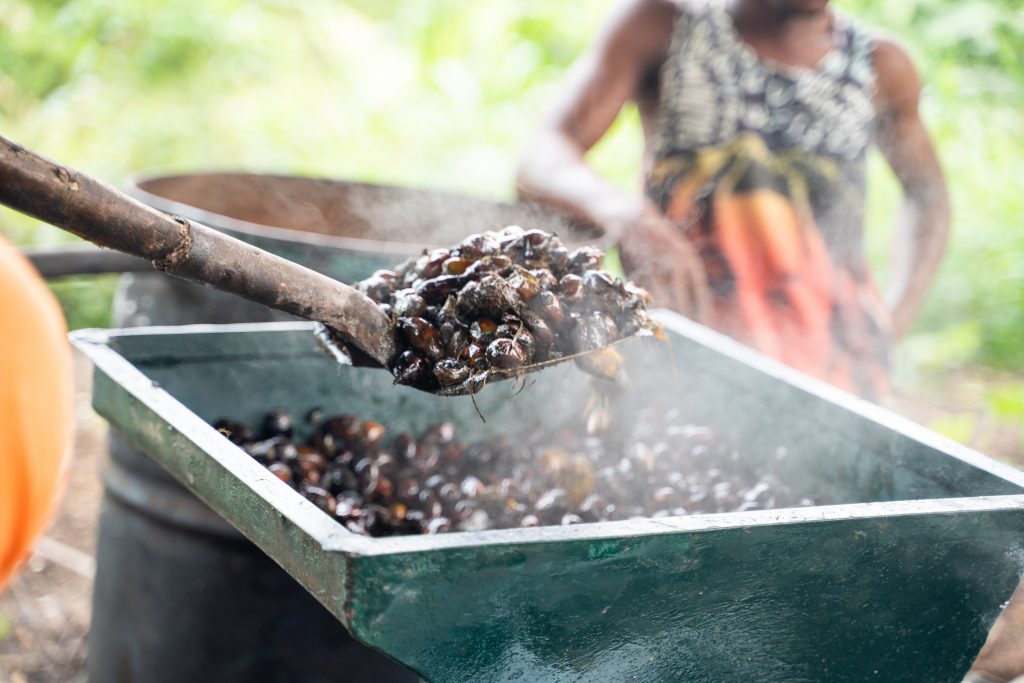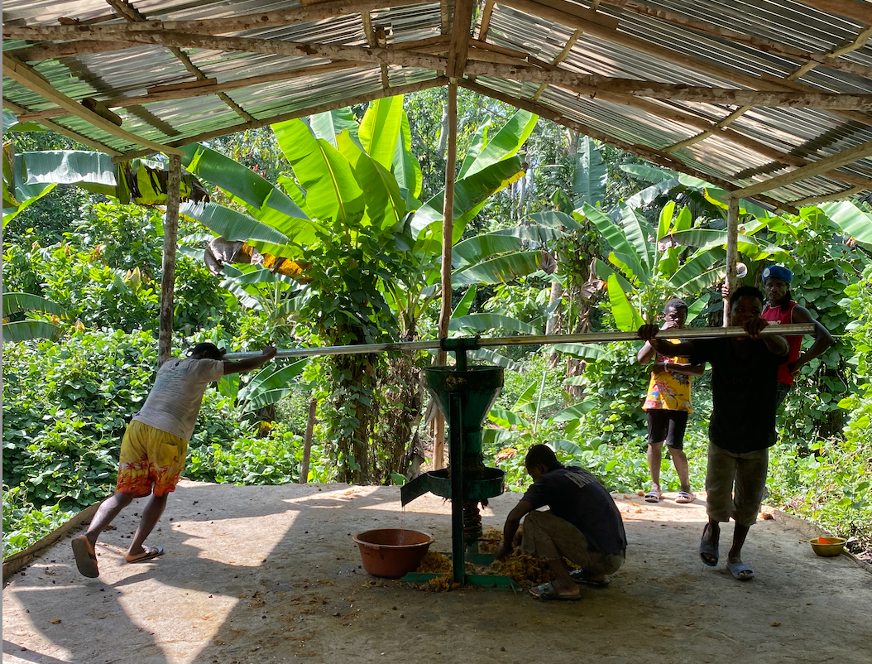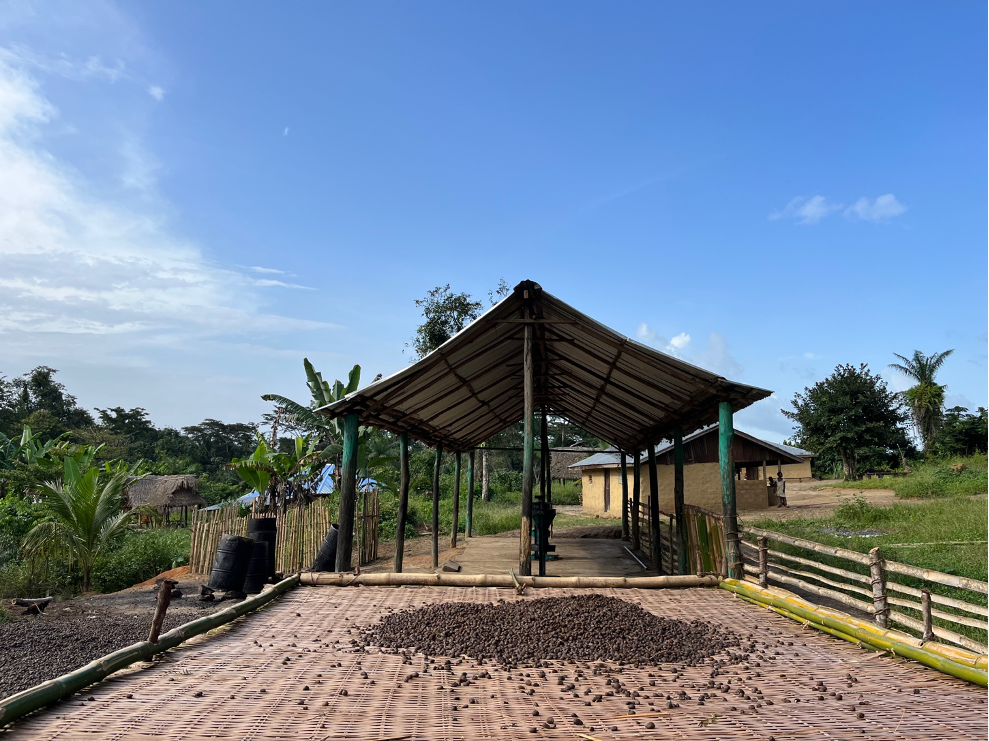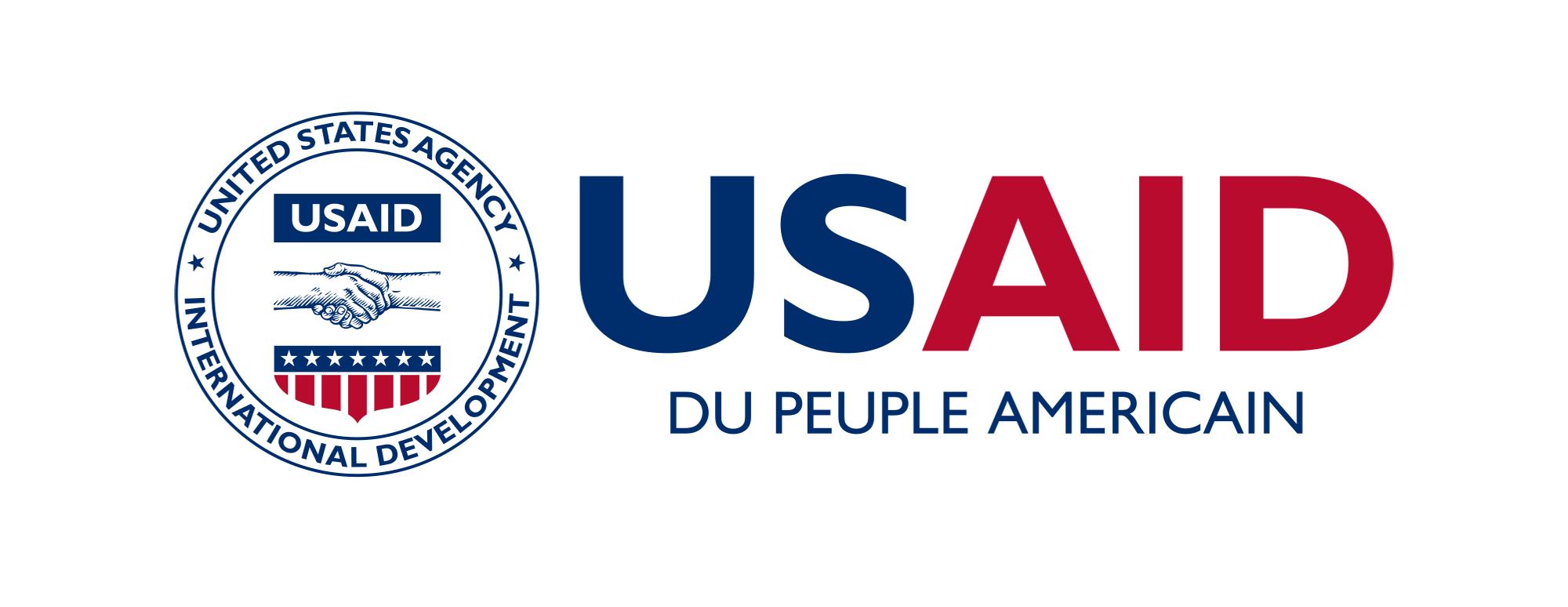Wild dura palm is a native species and is widespread throughout the West Africa sub-region, including Liberia. Red palm oil, made only from dura palm, is the staple vegetable oil within Liberian cuisine, but despite the trees being abundant, around 35 percent of its palm fruit is left unharvested every year due to limited infrastructure and time-intensive manual processing methods. Liberia relies mostly on imported palm oil to meet household and factory demand, despite the wealth of indigenous palm resources. Identifying this contradiction, Mahmud Johnson founded J-Palm Liberia (J-Palm) to empower smallholder oil palm processors in rural communities through the provision of community-based-mills.

Processing palm fruits at a community based-mill site in Liberia. Photo Credit: J-Palm
In Liberia, the co-investment partnership has seen J-Palm expand their project by providing community based-mills to 31 communities in Bong County and certifying these communities as organic. The central palm kernel oil processing mill located in Gbarnga was also certified organic. The community mills have reduced processing time by 70 percent and improved extraction rates by 53 percent on average, leading to additional profits to the smallholders. J-Palm also purchases palm kernels—a by-product from the palm oil extraction process which was previously viewed as a waste product— to process into palm kernel oil. This palm kernel oil is incorporated into J-Palm’s own brand of health and beauty products, Kernel Fresh, which is sold locally and internationally.
“J-Palm has been a huge help to us in the community. Before J-Palm, it used to take an entire day to process a drum of palm fruits to only get one tin of 22-litres of oil. Now, I can process the same quantity of palm fruits within two hours and get up to two tins and an additional 4 litre gallons. Also, we used to make our oil and waste the palm kernels. But now, we can generate additional income through the sales of the palm kernels to J-Palm. I now make up to $330.57 monthly compared to $82.64 before,” says Samuel Jackson (Palm Oil Producer in Gbaota Town, Bong County, Liberia).

Processing palm fruits at a community based-mill site in Liberia. Photo Credit: J-Palm
Pacha Soap has identified a big regenerative organic movement in the United States that will boost sales. Pacha Soaps supported J-Palm to obtain a Regenified Certification to create a competitive advantage for J-Palm oils. In April 2023, J-Palm’s 31 partner communities received further accolade by being awarded the first Regenified Certification globally outside of the United States, immediately registering as the top tier of regenerative agriculture due to the way that Liberian palm communities are sustainably harvesting palm fruit. The first exports of 20 MT of palm kernel oil to the United States due in July 2023 will also be labeled as Certified Regenified. The premium organic price earned will enable the company to generate increased revenues, sustaining its impact on farmers while expanding into more communities.
Through its Trade Hub partnership, J-Palm leveraged Bext360 to implement a block chain traceability system. The system is already used to manage the end-to-end traceability of raw materials from the 31 communities and more than 2,500 smallholders. Further improvements to track carbon sequestered in the harvest areas are being developed. Once the module is finalized, it will provide a basis for the communities to be further rewarded financially for managing the forest and maintaining the ecosystem.
“Our partnership with USAID via the Trade Hub has been catalytic. With the investments realized in the communities and at our central processing mill, our factory throughput has increased, and we are hopeful that with further improvements planned in our factory and future expansion into other communities, the impact in terms of exports, jobs, and additional revenue to the communities will be significant to help create permanent change,” says Mahmud Johnson, Founder and CEO of J-Palm Liberia.

A community based-mill site in Liberia. Photo Credit: J-Palm

